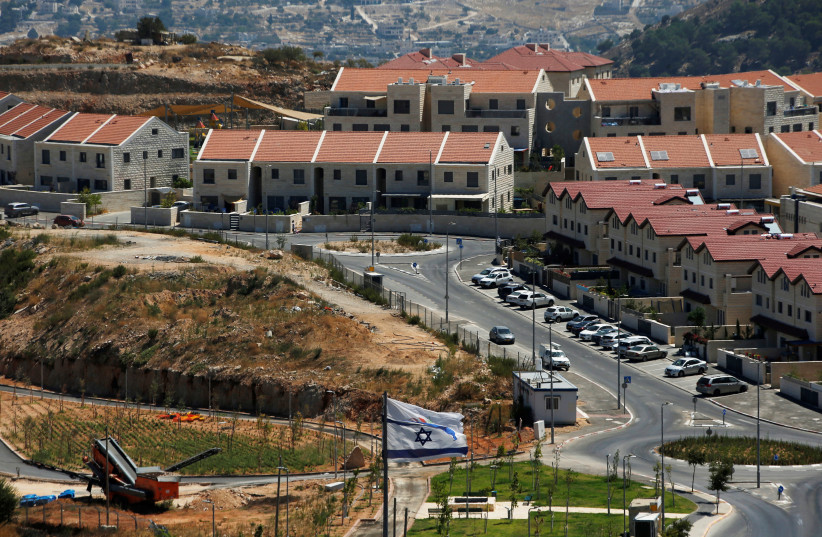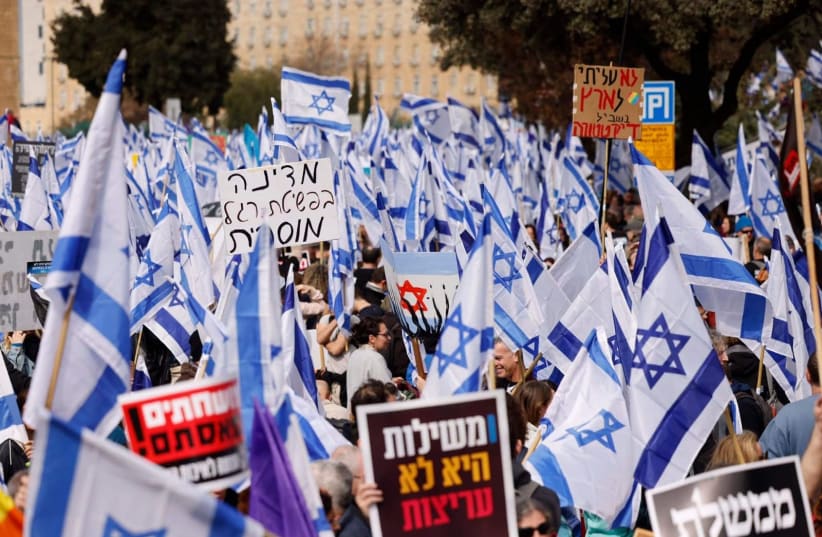The leaders of the Samaria, Binyamin and Gush Etzion regional councils rejected a strike declared by the Federation of Local Authorities in Israel on Monday, with the Samaria and Binyamin regional councils announcing that they would continue to provide services to the public.
"Following the announcement of the Federation of Local Authorities about the shutdown of the economy, the Samaria Regional Council will not go on strike and will continue to provide services," said Samaria Regional Council head Yossi Dagan.
The head of the Binyamin Regional Council Israel Ganz announced on Monday that the services of the Council are operating as usual and the council is not taking part in any kind of strike.
The Federation of Local Authorities announced a strike on Monday morning after mass protests broke out across Israel on Sunday night in response to a decision by Prime Minister Benjamin Netanyahu to fire Defense Minister Yoav Gallant after Gallant publicly expressed concerns about the security ramifications of the government's efforts to pass the judicial reform.
Efrat mayor called for referendum

Additionally, on Monday, Efrat Mayor Oded Revivi called for a referendum to be held on the reform in which the opposition would prepare one version and the coalition would prepare another version and the public would vote for one or the other.
"The crisis, the demonstrations against the reform and those planned tonight in support of it - along with the political upheaval - necessitates holding a referendum on an outline that will be presented by the coalition and an outline that will be presented by the opposition," said Revivi. "There is currently no other option on the table that will stop the snowball."
Revivi noted that a referendum will force the parties to conduct a "substantive, concrete and in-depth discussion" about the meanings of the changes in the reform.
A referendum will also create a target date to get out of the crisis and return to day-to-day affairs, says Revivi, advising that such a referendum take place after Yom Haatzmaut.
Religious Zionist MK Zvi Sukkot rejected the opposition to the reform expressed on Monday, saying that right-wing voters were being "trampled" by the protests and the left-wing parties, comparing the situation to the Disengagement from the Gaza Strip and northern Samaria.
"In the State of Israel 2023, after 70 years, the Right is allowed to vote and be elected in the elections, to sit here on the chairs and hold the titles of MK and minister - but that's it," said Sukkot.
Referencing the Disengagement, Sukkot added "[right-wing voters] remember how in those days the country was full of orange ribbons - yet no one was moved by their protest. Their tears did not melt cold hearts. Their houses were destroyed, their graves were dug, their mouths were shut. They remember how they were trampled then, and they see how they are trampled today."
